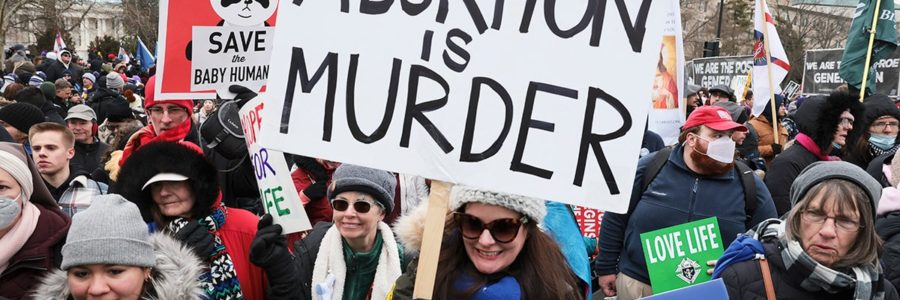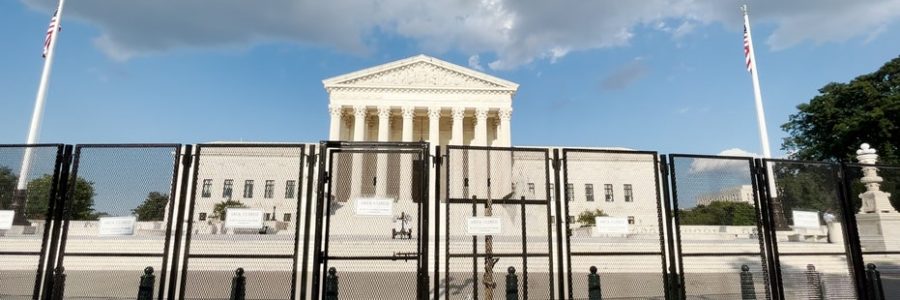“Real Time” host Bill Maher took aim at former President Trump and Republicans for their dramatic shift on abortion as the 2024 election steadily approaches. Maher kicked off the panel discussion on the Arizona Supreme Court’s landmark ruling upholding a near-total abortion ban in the state, a direct result of the Supreme Court overturning Roe … Continue reading Bill Maher skewers Trump, GOP's shift on abortion: 'So killing babies is OK in some states?'
Tag: abortion
Kuster, Burns focus on inflation, abortion in race for New Hampshire's 2nd Congressional District
U.S. Rep. Annie Kuster said her Republican challenger was concealing his position on abortion legislation, while Robert Burns accused the five-term Democratic incumbent of not doing enough in Congress to deal with rising costs during their second and final debate Friday.
The two candidates for New Hampshire’s 2nd Congressional District agreed during their WMUR-TV debate on tax exemptions and credits for people who are making their homes more energy efficient, but differed on the Low-Income Home Energy Assistance Program for families.
Burns, who runs a quality control and pharmaceutical safety company, said he would not support the program. “What we need to do is lower the cost of energy for everybody, not just a select few that are going to get a $500 voucher,” he said. Kuster supports the program and asked for more money.
In bringing down costs overall, Kuster said she believes in a multi-pronged approach, including the production of lower-cost food closer to home. Burns said he is in favor of opening up more gasoline production in the United States and building new plants to process diesel fuel.
“The Biden administration was in complete denial over the inflation and the oncoming economic disaster that we’re heading towards right now,” Burns said. “She’s been in there for 10 years. They haven’t been able to take care of these problems.”
Kuster responded that New Hampshire is “woefully behind” neighboring states in using solar energy. She said she was pleased about the passage of the Inflation Reduction Act, which includes investment in renewable energy.
“We can’t keep chasing oil and gas and pipelines forever,” she said.
Burns said Congress should have been working on investing in nuclear power and advancing battery technology years ago, but now, “it’s a little late.”
“But why is the state dragging their feet on the net-metering? That’s a big problem here,” Kuster said.
“Are you running for governor or Congress?” Burns said.
On the subject of abortion, Burns, who is pro-life, said he supports a federal “heartbeat bill” banning abortion at 12 to 15 weeks. He said he has always agreed there should be an exception for the life of the mother.
NEW HAMPSHIRE BATTLEGROUND POLL SHOWS KEY SENATE SHOWDOWN IS DOWN TO THE MARGIN OF ERROR
Kuster, who supports the Women’s Health Protection Act, which would protect the right to access abortion care nationwide after the overturning of Roe v. Wade, said Burns was attempting to change his position.
She said Burns has described himself as “100 percent pro-life at conception” and that Republicans in Congress are sponsoring a bill that would ban abortion at conception. She said the legislation that Burns supports would criminalize abortion, putting women and doctors in jail.
“Well, of course, that’s completely untrue,” Burns, adding, “this is absolute fear-mongering.”
NEW HAMPSHIRE BATTLEGROUND POLL SHOWS KEY SENATE SHOWDOWN IS DOWN TO THE MARGIN OF ERROR
On other topics, both candidates disagreed with a decision by Florida’s governor to pay for flights from Texas to Martha’s Vineyard that carried migrants who entered the country illegally. They also were against the setup of immigration checkpoints on New Hampshire highways.
Louisiana Supreme Court denies appeal challenging abortion ban
In a win for pro-life advocates, the Louisiana Supreme Court rejected an appeal in the continued legal fight regarding the state’s abortion law, meaning the ban will remain in effect.
The ruling, which was handed down Friday, comes after the U.S. Supreme Court overturned Roe v. Wade in June, allowing states to make their own abortion laws, thus forcing Louisiana’s three clinics to rely on rulings and temporary restraining orders to continue operations. Providers had hoped the latest decision would allow them to resume abortion services.
“While it is disappointing that four of the seven justices, without any written explanation, issued a ruling that will effectively deny critical care to women throughout Louisiana, the litigation continues, and we are confident we can affect meaningful change,” Joanna Wright, an attorney for the plaintiff, said.
NEW ORLEANS WOMAN CHARGED WITH STABBING TWO TODDLERS, LEAVING ONE DEAD
Louisiana’s trigger law, designed to take effect following the U.S. Supreme Court’s decision, prohibits abortion in the state and does not allow exceptions for rape or incest.
Plaintiffs challenging the state’s ban acknowledge abortions can now be prohibited but contest that the law’s provisions are contradictory and unconstitutionally vague.
State Judge Donald Johnson issued a preliminary injunction on July 21, allowing clinics to continue offering abortions while the lawsuit pertaining to the ban on the procedure is battled out in court.
IDAHO SUPREME COURT: ABORTION BANS WILL BE ALLOWED TO TAKE EFFECT AMID CHALLENGES
But just days later, abortions were stopped after a state appeals court ruled in favor of Louisiana Attorney General Jeff Landry, a defendant in the case. A “suspensive” appeal was granted and Johnson was ordered to reinstate enforcement of the abortion restrictions.
The plaintiffs made an unsuccessful appeal of the 1st Circuit Court’s ruling to the Louisiana Supreme Court.
Landry lauded Friday’s ruling in a Twitter post, saying he was “pleased with the Court’s decision and will continue fighting to end this legal circus.”
The Associated Press contributed to this report.
John Legend on abortion rights: 'Government should not be involved'
The singer has spoken out on the issue after his partner suffered a miscarriage two years ago.
The post John Legend on abortion rights: 'Government should not be involved' appeared first on Buy It At A Bargain – Deals And Reviews.
Supreme Court probe into leak of draft opinion on abortion narrows list of suspects
Nearly three months after a bombshell draft Supreme Court opinion over abortion rights was leaked to the media, the question of who was responsible remains an ongoing Washington summer mystery.
Chief Justice John Roberts has ordered the Court’s marshal to conduct an internal investigation, but there has been no official update, and no indication whether the probe is ongoing, ended or suspended.
But multiple sources tell Fox News the investigation into the approximately 70 individuals in the court who may have had access to the draft opinion has been narrowed. Sources say much of the initial focus was on the three dozen or so law clerks, who work directly with the justices on their caseload. Fox News had previously reported those law clerks were asked to turn over their cell phones and sign affidavits. It is unclear whether those clerks have all cooperated.
Supreme Court law clerks work on a one-year contract for individual justices, and their term typically ends in mid-July. Most of the law clerks have now presumably moved on to other jobs, and any future cooperation with them into the leak investigation was seen as problematic.
SUPREME COURT’S ROE V. WADE DECISION: READ THE DOBBS V. JACKSON WOMEN’S HEALTH RULING
Fox News has been told court Marshal Gail Curley has also asked several permanent court staff who may have had access to the draft opinion to turn over their cell phones and electronic devices.
But the key question of the leaker’s identity remains unknown, at least publicly. Also unanswered is whether any punishment or discipline will be forthcoming; whether outside federal law enforcement or private law or security firm has been hired to help; and what steps if any will be taken to prevent future such leaks.
The court’s public information officer Patricia McCabe offered a formal “no comment” when asked Friday by Fox News.
A day after the early May leak, Roberts announced the internal probe, which was not given a deadline or any publicly-released mandate.
“To the extent this betrayal of the confidences of the Court was intended to undermine the integrity of our operations, it will not succeed,” the chief justice said in a rare public statement. “The work of the Court will not be affected in any way.”
It all comes amid ongoing, underlying tensions at the court. The building remains surrounded by high metal fencing, erected shortly after the May 3 leak of the draft obtained by Politico. That draft showed at least five conservative justices prepared at that time to strike down the nearly five-decade Roe v. Wade precedent, and end the nationwide constitutional right to abortion. The final opinion issued June 24 did just that, causing enormous political, legal, and social ripples, as states and Congress now grapple with revising and crafting legislation on access to the procedure.
The justices and their families are now under round-the-clock protection, and vocal protesters have shown up regularly at the homes of some justices. A California man has been charged with attempting to assassinate Justice Brett Kavanaugh, after being arrested near the justice’s Maryland home, armed with a handgun and after making threats.
Inside the court, the leak and ensuing final opinion in Dobbs v. Jackson Women’s Health Organization intensified the already strained dynamic among the nine justices, where a 6-3 conservative majority in the past two years has moved aggressively on hot-button issues like gun rights, immigration, religious liberty, and executive power.
“Look where we are, where now — that trust or that belief is gone forever,” Justice Clarence Thomas said shortly after the leak became public. “When you lose that trust, especially in the institution that I’m in, it changes the institution fundamentally. You begin to look over your shoulder. It’s like kind of an infidelity that you can explain… but you can’t undo it.”
SUPREME COURT JUSTICE CLARENCE THOMAS WILL NOT TEACH GEORGE WASHINGTON LAW SEMINAR AFTER UPROAR
Thomas is not exaggerating. But several people close to the justices say the nine members hope the ongoing summer recess serves as a “cooling off” period after tensions in the last weeks and months of the past term made the unique workplace very difficult.
And there is the expectation the newest Justice Ketanji Brown Jackson will bring a fresh perspective and a new dynamic to the court — someone who like her mentor and predecessor Justice Stephen Breyer may be able to reach across the ideological aisle on many issues.
Jackson officially joined the court July 1, and has spent the past few weeks quietly moving into her chambers and hiring her small staff — including the four law clerks who will serve a vital supporting role — a sounding board for the myriad of cases big and small that will come her way.
Her colleagues — and the public at large — will watch to see how quickly the 51-year-old Jackson adjusts to a fractured court, and whether she will be the strong progressive voice President Biden and her supporters have promised.
Like last term, the court’s docket for its next term that begins in October is already filled with its share of divisive cases — affirmative action in college admissions, religious liberty and LGBTQ+ rights, immigration policy, and election redistricting.
For now, the conservative majority seems poised to advance its winning streak.
“I expect that continuation of where they’re going, they’re going to be controlled by a conservative majority,” said Thomas Dupree a former top Justice Department official and now a leading appellate attorney.
“There’s not going to be a great ideological shift when you’re replacing one liberal vote with another liberal vote,” with the addition of Justice Jackson. “But at the same time, justices over history will tell you that any time you have a single member added to the court, given that it’s a nine person body, it’s a new court. The interpersonal dynamics are different than negotiations behind the scenes are different, and you can never quite anticipate how that might ultimately play out. But at least for the foreseeable future, I think we’re going to continue to see the conservative majority controlling the outcomes in most of the big ticket cases,” Dupree said.
Justice Elena Kagan has expressed concern for how the public will perceive the court moving forward.
“I’m not talking about any particular decision or even any particular series of decisions, but if over time the court loses all connection with the public and with public sentiment, that’s a dangerous thing for a democracy,” Kagan said at a judicial conference in Montana last week. “Overall, the way the court retains its legitimacy and fosters public confidence is by acting like a court, is by doing the kinds of things that do not seem to people political or partisan.”
Jim Jordan says Supreme Court abortion decision is 'victory' over 'intimidation tactics of the left'
Rep. Jim Jordan weighed in on the Supreme Court’s decision to remove 50 years of legal precedent established under Roe v. Wade by ending a woman’s constitutional right to an abortion.
The Supreme Court's abortion ruling and the Utah senate race
Sen. Mike Lee of Utah has a hard political fight ahead. His main challenger in November, Evan McMullin, says Sen. Lee is extreme with his abortion views.
Michigan Gov. Whitmer asks state's top court to rule on abortion rights
The Michigan Supreme Court was urged by Gov. Gretchen Whitmer on Friday to rule on whether abortion is protected under the state’s constitution.
Schumer's Radical Abortion Bill
The Women’s Health Protection Act makes the new Democratic policy: Safe, legal and don’t tell your parents.
The post Schumer's Radical Abortion Bill appeared first on #1 SEO FOR SMALL BUSINESSES.
The post Schumer's Radical Abortion Bill appeared first on Buy It At A Bargain – Deals And Reviews.
Oklahoma House passes near-total abortion ban
The Oklahoma House passed a near-total abortion ban on Tuesday – the only exception being to save the life of the mother – with overwhelming support in the chamber.









